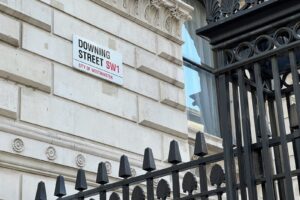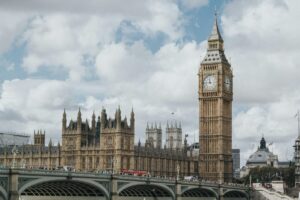Many advisers will be wondering what Chancellor Hunt might have in mind for pensions. In this analysis, Claire Trott, Divisional Director – Retirement and Holistic Planning, St. James’s Place shares her pre-Spring Budget thoughts and wishes ahead of the Chancellor’s Spring Budget speech on March 6th.
“Given the significant changes announced in the 2023 Budget on pensions, it feels like there will be minimal changes announced. However, there are many other areas that could impact pensions and pensions advice. Anything to do with income tax and IHT also impacts the right decisions with regards to where, how, and when to invest in a pension.”
Money Purchase Annual Allowance
“While the Money Purchase Annual Allowance (MPAA) is currently set at £10,000, it remains a potential disincentive for individuals with extensive expertise to re-enter the workforce. Although drawdown provides flexibility to start and stop income, there’s an opportunity to take a break at the minimum pension age and utilise funds to experience retirement while still young and fit. Many, however, are reluctant to cease working permanently and may find returning to work to share expertise appealing. The MPAA limits options for supplementing pension savings in this situation. Encouraging a more flexible approach, allowing for a retirement “gap year” or two, could attract individuals back to work, supporting the economy. This pension complexity, particularly as it only impacts those who take benefits in certain forms, should be reconsidered.”
Simplification of tapered taxation.
“Beyond pensions, complexities in the tax system create challenges for individuals, couples, and families in understanding and planning for their future. High-Income Child Benefit tax charges can disproportionately affect households based on income levels, impacting on those returning to work, or which parent does what hours. It should either be simplified significantly through testing household income or removed entirely.”
“The next concern involves the tapering of the personal allowance, creating a 60% tax band in England and Wales that is widely misunderstood and could potentially discourage individuals from pursuing higher-paying roles. The take-home remuneration may not sufficiently compensate them for the increased workload and responsibility. This system poses challenges if there are any future increases in the personal allowance. If the personal allowance were to be raised, a portion of this taper would fall into the 45% tax band, further adding to the complexity and potential confusion.
“The frozen personal allowance of £12,570 will soon mean that more and more pensioners will be forced to pay additional tax or be pushed into doing a tax return. State pensions are paid gross and if they have private pension income then the tax paid on these will be adjusted to take account of any of the personal allowance used by the state pension payments. So, any increase in the state pension, although welcome, will have less impact on those who are receiving other pension payments from their hard-saved income through their lifetimes because it will just mean more of that income is taxed, or even push them into a higher rate of taxation.
“It seems right that this should be increased in line with wages to ensure we are not penalising individuals year after year for increasing their income and driving growth.”
Income tax
“The complexity of income tax calculations, with various bands and tapers, poses challenges for both professionals and individuals. Simplification is essential to ensure consistency across calculations for different allowances, making it more accessible for everyone.
“Reducing income tax will always be welcomed, but the impacts of these on things such as pension savings shouldn’t be dismissed. If there is a reduction in the basic rate of tax, as the tax relief granted stays at 20% for simplicity, those who pay contributions before tax is deducted will lose out and shouldn’t be forgotten as they have for many years. Only now are we seeing any kind of changes to address the disparity for lower earners in net pay schemes who haven’t had any tax relief in their pensions, whereas those in a relief-at-source scheme have always been able to claim the 20%. Fairness is key to ensure that our lowest earners are able to benefit the same, however, their employer decides to structure their auto-enrolment scheme.
“Maintaining salary sacrifice for pension contributions is crucial, as it provides an additional incentive for savers. However, regulations should be put in place to ensure that employers pass on savings to employees, rather than pocketing the benefits.”
Inheritance taxation
“The relationship between Inheritance Tax (IHT) and pensions is significant, with any changes impacting on pensions advice. Abolishing IHT entirely might discourage pension savings if the added benefit of keeping substantial funds outside the estate is lost. Clarity is required for transfers in serious ill health, with outdated rules requiring revision. Testing for IHT purposes should focus on cases where deliberate and substantial additions to pensions during ill health are evident, relieving a burden on those seeking appropriate options for their beneficiaries.”













